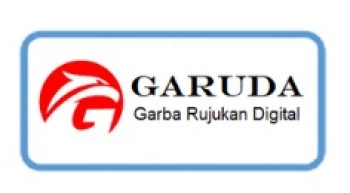THE ROLE OF THE DANCE TEACHER IN DEVELOPING MOVEMENT CREATIVITY
Abstract
The research aims to describe the role of dance teachers in developing students' movement creativity in class XI dance learning at SMAN 1 Cikarang Barat. This research was conducted because of the conditions for teacher success in developing students' movement creativity in achieving dance work competence. The research methodology used is descriptive analysis, with a qualitative approach. The subject of this research is an arts and culture teacher at SMAN 1 Cikarang Barat. The results of the research showed that students obtained very good results in learning to create dance works. This is because teachers have 21 roles in dance learning. Dance teachers can carry out 15 roles in developing movement creativity optimally, namely the role of 1) educator; 2) teacher; 3) trainer; 4) reformer (innovator); 5) model and role model; 6) researcher; 7) activity driver; 8) view generator; 9) regular workers; 10) camp mover; 11) emancipator; 12) preservative; 13) learning resources; 14) motivator; 15) facilitator. Apart from that, dance teachers also act as 1) mentors, 2) managers; 3) demonstrators; 4) advisors; 5) evaluators; and 6) culminators, but these six roles have not been implemented optimally due to limitations in online learning and teacher consistency in preparing learning tools.
Keywords
Full Text:
PDFReferences
A'yuna, Qurrata. (2015). Contribution of the Role of Parents and Subject Teachers to the Development of Student Creativity. Scientific Education, Vol 1, No 1
Aâ, Q. (2015). Contribution of the Role of Parents and Subject Teachers to the Development of Student Creativity. Educational Journal: Journal of Guidance Counseling, 1(1), 1-19.
Ansori, A., & Sari, AF (2020). Educational innovation during the Covid-19 pandemic. Journal of Indonesian Educational Literacy, 1(2), 133-148.
Appadurai, A. (1990). Disjuncture and difference in the global cultural economy. Theory, Culture & Society, 7(2–3), 295–310.
Aragon, L. V. (2012). The problems of owning culture: global intellectual property law and 'traditional' community arts in Indonesia. Asian Ethnicity, 13(4), 399–417. https://doi.org/10.1080/14631369.2012.71007
Astuti, NIF, Patras, YE, & Sardjijo, S. (2023). The Relationship between Pedagogical Competence and Self-Efficacy with the Creativity of Public Elementary School Teachers in Cibinong District, Bogor Regency. Basicedu Journal, 7(6), 4272-4282.
Banani, M.T. (2017). The influence of the principal's leadership on teacher competence in realizing learning effectiveness. UNIGA Education Journal, 11(1), 67-76.
Bistari, B. (2017). Concepts and indicators of effective learning. Journal of learning and scientific studies, 1(2), 13-20.
Fakhriyani, DV (2016). Development of creativity in early childhood. Didactic Discourse, 4(2), 193-200.
Fany, M., Romlah, R., Damayanti, O., Busahdiar, B., & Rosfiani, O. (2022, October). Correlation of Parental Education Level with Student Learning Achievement at SMPN 2 South Tangerang. In Proceedings of the National LPPM UMJ Research Seminar (Vol. 1, No. 1).
Kau, Murhima A (2017). The Role of Teachers in Developing Creativity in Elementary School Children. Curriculum Implementation and Counseling,
Khanip, A., & Ikhrom, I. (2023). The Influence of Spirituality and Creativity on the Performance of Moral Creed Teachers. Permata: Journal of Islamic Religious Education, 4(2), 252-270.
M, Abubakar.H & Ngalimun. (2019). Developmental Psychology (Basic Concepts of Children's Creativity Development). Yogyakarta: K-Media.
Masyhudi, M. (2022). Tgk Chiek Oemar Diyan Islamic Boarding School Leadership Patterns in the Moral Development of Santri (Doctoral dissertation, UIN Ar-Raniry).
Selasih, NN (2017). Teachers' Efforts to Increase Student Creativity in the Era of Globalization. Guna Widya: Journal of Hindu Education, 4(2), 13-22.
Basil, Ni Nengah. (2019). Teachers' Efforts to Increase Creativity ParticipantEducating in the Era of Globalization." Guna Widya: Journal of Hindu Education, 4.2
Sudrajat, J. (2020). Teacher competency during the COVID-19 pandemic. Journal of Economics and Business Research, 13(1), 100-110.
Circular Letter No. 4 of 2020 concerning the implementation of internal education policies emergency period for the spread of Corona Virus Disease (COVID-19)
Wartomo. (2016). The Role of Teachers in Digital Era Learning. Proceedings of the National Teachers' Scientific Meeting (TING) VIII. 273
Welle, Deutsche. (accessed on 21 February 2020, 11.09). Ranked in the bottom 6, Indonesia is asked to abandon the feudalistic education system. https://news.detik.com/dw/d-4811907/peringkat-6- bottom-indonesia-asked-to-stayFeudalistic-education-system
Yusuf, Bistari Basuni. (2017). Concepts and Indicators of Effective Learning. Journal aLearning and Science, 1(2), 13.
DOI: https://doi.org/10.17509/jddes.v4i1.44820
Refbacks
- There are currently no refbacks.
Copyright (c) 2024 Universitas Pendidikan Indonesia

This work is licensed under a Creative Commons Attribution-ShareAlike 4.0 International License.
E-ISSN 2776-5326 | P-ISSN 2797-8990
Address:
Program Studi Pendidikan Seni Tari, Fakultas Pendidikan Seni Dan Desain, Universitas Pendidikan Indonesia. Gedung FPSD - Jl. Dr. Setiabudi No.229, Isola, Kec. Sukasari, Kota Bandung, Jawa Barat 40154, Bandung, Provinsi Jawa Barat. (022)200-9198.
JDDES is licensed under a Creative Commons Attribution-ShareAlike 4.0 International License














